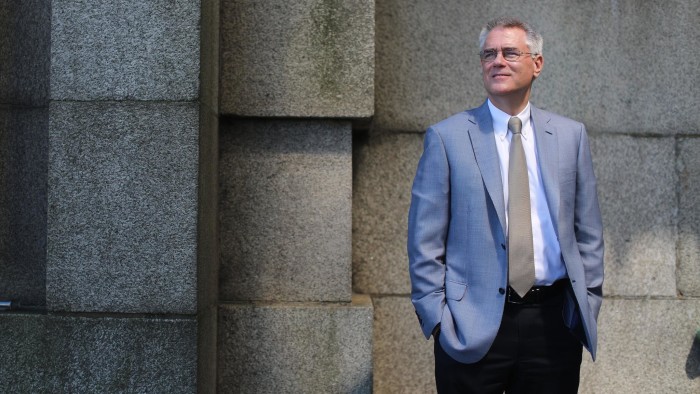Meet the dean: Steven Currall, dean of UC Davis

Simply sign up to the Business education myFT Digest -- delivered directly to your inbox.
Steven Currall is not really the traditional US business school dean. A psychologist by training, he taught overseas for several years – in London Business School and UCL in London – as well as studying at the London School of Economics.
But just as importantly, he is no fan of the finance focus that permeates most US business schools. The paradigm that finance is king “is like a religion,” he says. “I think that’s a huge issue for future business leaders.”
As dean of the business school at the University of California, Davis, he presides over a business schools that has one of the most diverse industry placement records for its MBA class – they go into every kind of industry, says the dean. This is in spite of the fact that 70 per cent of MBA students – albeit of a small class, the school enrols just 50 or so into the first year of the full-time MBA each year – stay in Northern California.
This plays well into the dean’s plans for the business school to develop a more active relationship with other departments. “We’re thinking deeply about how to align ourselves with the rest of the university,” says the affable Prof Currall.
In particular, the business school, which has part-time MBA classes in the Bay area and in Sacramento, has capitalised on the university’s research strength in food and agriculture, with an MBA elective in innovation in the food industry. It also has an executive programme for the wine industry, but Prof Currall says this is a niche industry. “It’s a tiny industry. There are only about half dozen companies that can afford to hire an MBA.”
Energy and sustainability are other areas in which Prof Currall believes UC Davis can hold its own against other bigger brand Californian universities such as Stanford and UC Berkeley, and are areas which are also important for business.
But arguably one of Prof Currall’s biggest triumphs has been in developing the role of women within the traditional male environment of the business school. These days 43 per cent of professors at the UC Davis business school are women and the school has a substantial Women in Business programme.
The state of California has also been particularly active in advocating more women on corporate boards – just one in 10 board members in California are women. Perhaps because of his time in Europe, where such initiatives are widespread, Prof Currall is playing an active role in promoting this agenda, though he is aware of some of the obstacles. “Part of the challenge in California is that the IT sector is engineering dominated.”
Not that the UC Davis dean is a stranger to engineering school – he has a management role in one in the past and he has a particular interest in IT and innovation. Indeed it is a topic of his much of his research and he is concerned about the gap that has developed between basic research and industry, a view expressed in Organized Innovation, a book he co-authors.
Prof Currall’s multidisciplinary attitude and policies have served him well. Though he has only been dean of the business school for five years, he has been selected to head up the development of a new UC Davis campus in Sacramento, as an adviser to the Chancellor. The 240-acre campus will be the nexus for teaching on food, health and the environment, as well as addressing and influencing policy issues in these areas and addressing the related business issues in northern California.
———————————————————————————-
Out of hours:
Steven Currall, dean of University of California, Davis, lists some of his favourite activities, places and things.
City: London
Holiday destination: Amalfi coast of Italy
Sport: American football
Restaurant: Bryant’s BBQ in Kansas City, Missouri
Band: Earth, Wind, & Fire
Mode of transport: Fantasy car is a Porsche Carrera
Talent wish list: Playing the saxophone
Alternative career: Architect
Animal: English bulldog
Comments